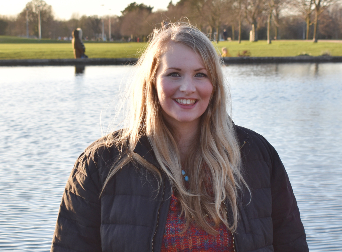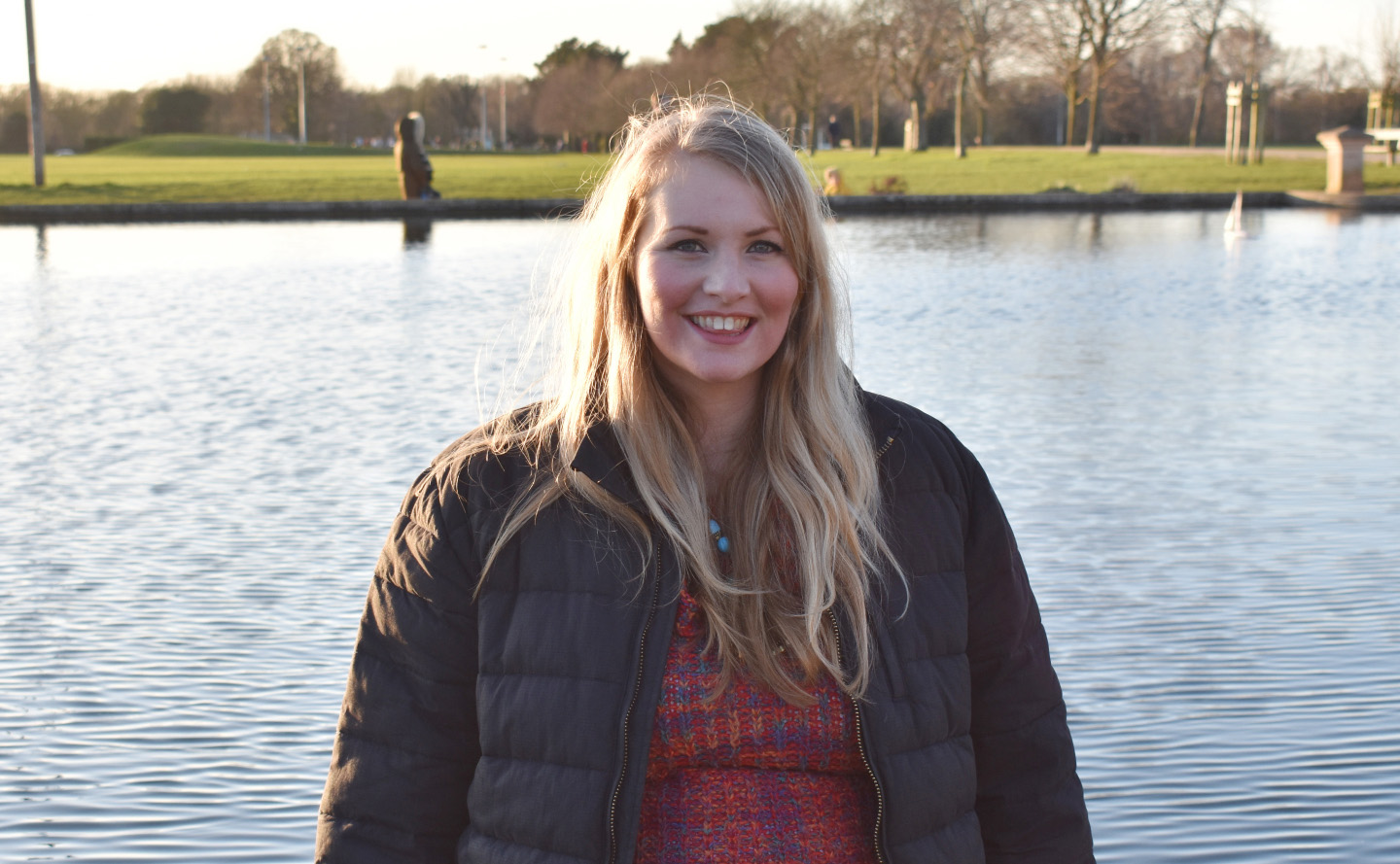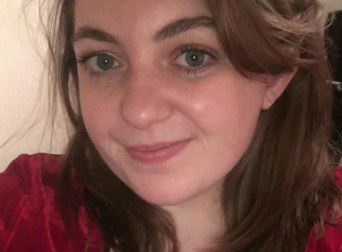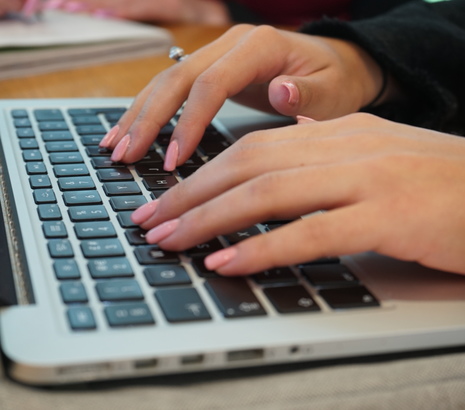BA (Hons) English Literature and Media
Key information
-
Typical offer:
Entry requirements -
Fees: See below
Full details -
UCAS code: Q3P7
-
Institute code: H36
-
Study abroad option
-
Work placement option
Find out more
Why choose this course?
- English Literature has a 94.2% overall student positivity* score (National Student Survey, 2023)
- Specialise in the literature genre and period of your choice
- Giving you up to date media skills and a great speaker programme
Would you like to grow from passionate reader into a critical thinker and literary scholar, and become a creative communicator in your own right? In a fast-paced, multifaceted media world, people with the ability to write, design and harness innovative technologies are in high demand. On this course you’ll gain real-world skills, learning how to create and publish content.
We’ll introduce you to writers and thinkers who will open doors to contemporary worlds and cultures remote from your own, and help you explore more familiar literature in ways that challenge your preconceptions. This means you’ll study literature written in English by writers from all parts of the globe, whose voices are relevant and important in our modern world. You will also learn how to apply these skills of analysis to other representations of the world, through cinema, television, magazines, the internet, and we will develop your critical awareness of how the media reflects and influences the world around us. You will study the ways in which people communicate, the channels used and develop the practical skills that foster your confidence and creativity in working with emerging media technologies.
Whatever your taste in literature, there will be something to interest and provoke you. From The Tiger Who Came to Tea to Jane Eyre, from Paradise Lost to Zadie Smith’s Swing Time, we’ll broaden your literary horizons and hone your critical thinking. We’ll also sharpen your practical skills enabling your career to get off to a flying start.
You’ll be taught by academic staff who bring fresh thinking to our accessible, engaging courses. Some are active researchers of international standing, who bring their own passion for their discipline into the classroom; others are dynamic teachers with extensive industry experience.
The course nurtures hands on technical skills, original creativity, agility, critical thinking, effective communication skills, confidence, and entrepreneurial attitudes, enabling our graduates to thrive in a rapidly changing industry. Careers in film, TV, radio, and journalism are obvious career pathways but our graduates also go into employment in public relations, advertising, and teaching.
Applying for this course is easy. Simply add us to your UCAS account by using the institution and course code mentioned in ‘Key information.’ There is no interview for this course. We’re just interested to hear why you want to study this subject at degree level. If you haven’t done either or both of these subjects before, that’s fine. You’ll likely have hobbies or extracurricular experience that show what skills you already have that you can bring to the University.
What's the course about?
You’ll benefit from a flexible programme of study, which introduces you to the methods and approaches of different disciplines, allowing you to concentrate on areas you find especially interesting
Teaching methods vary according to the characteristics of each module. Many are taught via weekly lectures and weekly seminars. Workshops are used in English Literature to discuss subjects in more depth and encourage independent analysis, and in Media for modules where the degree of practical skills taught is enhanced by the supervision of experts in their field.
In your first year, a core Literature module will equip you to read and interpret both traditional and contemporary literary texts critically as a scholar of English literature. Alongside this you can choose to revisit Shakespeare and consider his cultural relevance today through fictional, cinematic and TV adaptations; or to deepen your understanding of Gothic writing by tracing its origins back to the Romantic era. Core media modules introduce you to media and visual communications. You’ll gain an understanding of the basic processes and technical skills of media production. This includes key concepts and theories of media cultures, including media bias and media effects and learning how to use text and graphics to reach key audiences using different types of software.
In your second year, your ability to work as an effective and confident researcher is honed across both disciplines. In Media you’ll learn about research methods in the communications industry. Plus, there are practical opportunities to learn about publishing, and radio. You get to follow your own interests while you are conducting interviews or focus groups, writing blogs, articles, features or copy, creating magazine layouts or putting together a podcast or video. This might be food, film, travel, politics, lifestyle, or sports. You are encouraged to be creative and think independently. In your English Literature modules you’ll focus on period-based literature from the Renaissance onwards and gain an understanding of literary history, from Elizabethan verse and drama, via Augustan poetry and the emergence of the novel in the 18th century, to the radical transformations of the Victorian age, and the emergence of modernity in the twentieth century. You’ll also have the opportunity to consider ways of reading that go beyond textual analysis or historical context, such as understanding literature through the political or ideological lens of Marxism, feminism and post-colonial theory. You can choose a work experience module, Literature at Work, which explores English in the classroom and aspects of the literary heritage industry. The module is centred around a six-week work placement where you’ll gain valuable transferable skills. Our students have worked as school classroom assistants, in publishing houses or attractions such as London’s Charles Dickens Museum and Dr Johnson’s House.
Work placement/study abroad option: Between your second and final year, you’ll have the option to study abroad or do a work placement for up to a year. Not only will this give you an amazing experience to talk about but will also give your CV a boost. If you’d rather go straight to your final year, that’s absolutely fine too. You’ll decide in your second year with us, so there is still plenty of time to think about this.
Your final year gives you the chance to specialise. In English Literature you can tailor your literary study to reflect your own interests. Themed options include children’s literature, young adult fiction, Renaissance tragedy, European crime fiction, literary adaptations, and the culture of print in the 18th century. In Media, specific skills from pitching to business, campaigning for a cause or to advertise a product or service, content creation, web design, film or magazine production, all help hone skills transferable to the world of work.
Your study of English Literature will enhance your ability to analyse and synthesise complex ideas, and to express yourself clearly in both written and spoken English. These skills will be hugely beneficial to your study of Media, especially when coupled with practical skills which help to prepare you for your future career. Design your own app proposal, create a hard-hitting ad campaign, build a brilliant website, and craft an inspiring feature article, all whilst being supported by our industry experienced team. Working across different platforms and for different audiences, you’ll develop a packed portfolio that will demonstrate your skills, adaptability and ambition.
But you’ll need more than practical know-how to get published. So, we’ll develop your understanding of the global media industry, its influence on society, the legal and ethical contexts of your work and the impact of emerging technologies.
To see all your modules, see the ‘What will I study?’ section below.
'Media Matters' Guest Lecture series
Each year the School of Humanities hosts the Media Matters Guest Lecture Series featuring a range of industry professionals, giving talks on their experience in the industry. These lectures are recorded by our final year students and available on our Media Hub. Some of our previous speakers have included:
- Lewis Wiltshire, Head of Sport, Twitter UK
- Tobi Rachel Akingbade, showbusiness journalist who studied journalism and other media subjects at UH
- Ren Behan, Food blogger and journalist
- Terry Mitchinson, Welwyn Hatfield Times Editor
- Uche Amako, UH journalism alum and sportswriter
Your main campus is College Lane
This is where the creative arts, science and health-related subjects are based. This means you’ll share the campus with future nurses, scientists, artists and more. You can use the common rooms to relax with friends, work out in the 24-hour gym or have a drink in our on-campus pub or cafes. We also have restaurants for you to eat in or grab something on the go. Our Learning Resources Centres are open 24/7, which means you can study whenever suits you best. Want to pop over to the other campus? You can take the free shuttle bus or walk there in just 15 minutes.
What will I study?
Degree programmes are structured into levels, 4, 5 and 6. These correspond to your first, second and third/final year of study. Below you can see what modules you’ll be studying in each.
Check out our student blogs

Alumni Stories
Kate Stephenson
Meet Kate Stephenson who has excelled in the publishing industry since graduating. She currently works as the Education Editor at National Geographic Kids magazine.
Read more stories BA (Hons) English Language and Media| Current job role | Education Editor |
|---|---|
| Year of graduation | 2013 |
| Course of study | BA (Hons) English Language and Communication with Journalism and Media Cultures |

University experience
Kate always knew that she wanted to work in the media and her unique degree gave her the flexibility to understand the logistics behind magazines as well as develop her writing and communication skills. The variety of topics and modules covered in her course enabled her to understand a lot about her dream career and enable her to develop valuable skills for working in the industry.
While studying, Kate took every opportunity offered to her. Her lecturers gave her opportunities to network with their colleagues for the industry enabling Kate to secure work experience and explore different career opportunities upon graduation.
She also worked as part of the Students’ Union student media, called Triden Media, writing regularly for their newspaper and magazine. Kate says, ‘Take advantage of every opportunity while it’s on offer and dive in as much as possible.’
The future
In the future, Kate hopes to further develop and grow the project she is working on at National Geographic and their educational content. One of her recent projects was launching their Primary School resource service by writing the curriculum.

Alumni Stories
April Wilson
Meet April Wilson, who used the diversity of her course to gain new experiences and learn. She is currently an Alumni Relations Coordinator at the University of Sussex.
Read more stories BA (Hons) English Literature with Film| Current job role | Alumni Relations Coordinator |
|---|---|
| Year of graduation | 2017 |
| Course of study | BA(Hons) English Literature with Film |
| MA Journalism with Media Communications |
University life and experience
April initially decided to go to the University of Hertfordshire due to our close proximity to London. She liked that it was easy to commute into the city for shopping and concerts, but that Hatfield wasn’t as expensive to live in!
While studying, April gained valuable experience which helped her develop essential skills for her current role which meant she was able to start ‘armed with the knowledge’ she needed.
However, the most useful thing she learnt from her postgraduate course was having confidence in herself and her ideas, especially when presenting. She credits this to ‘the support of my peers and lecturers who made me feel more confident in my abilities.'
She adds that her undergraduate degree helped her develop the writing and research skills which she applies daily to her current role and her approach to work.
Not only did April gain experience from her studies, but the extra-curricular activities she took part in also helped develop her skills. She says, ‘The writing and video editing experience I was able to gain from my time volunteering for societies at the University was also essential in helping me to have the skills that are valuable within my role.’
Future aspirations
April is also willing to try new experiences to help her gain valuable work experience in a variety of roles. She has previously, done everything from fundraising for charity to running my own online magazine.
In the future, April hopes to continues her studies and complete a PhD in Film Studies. She is particularly interested in looking at representation in films and how this is interpreted through social media.

